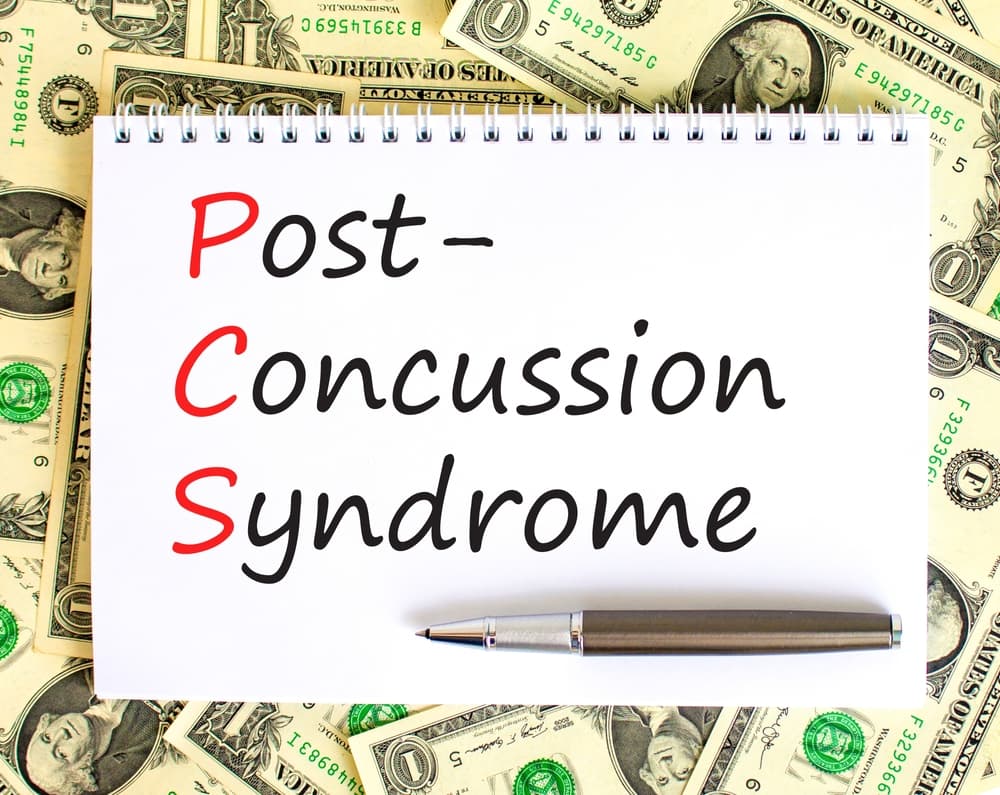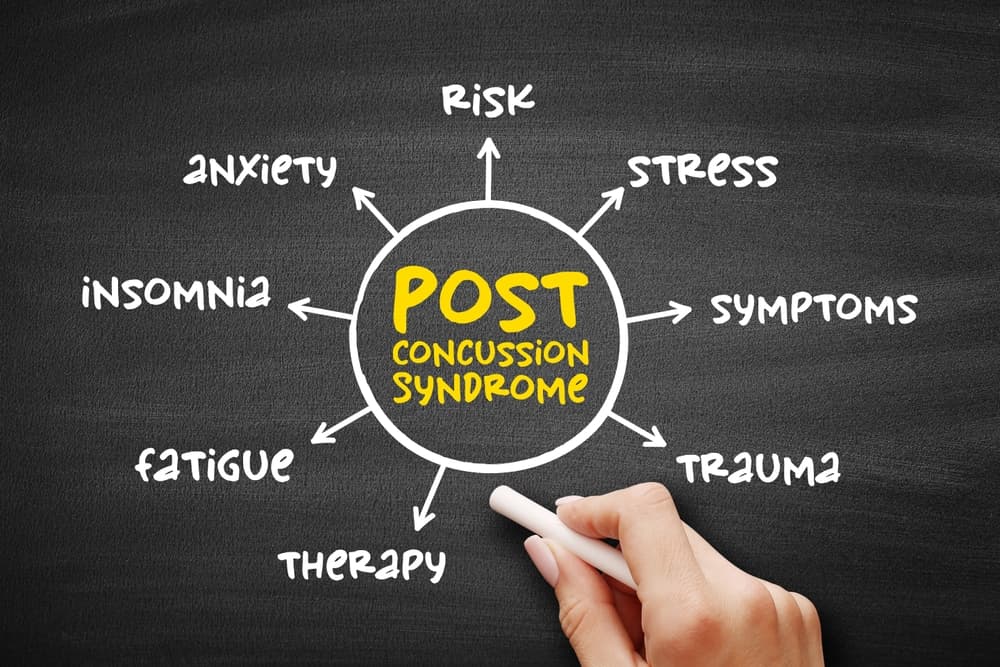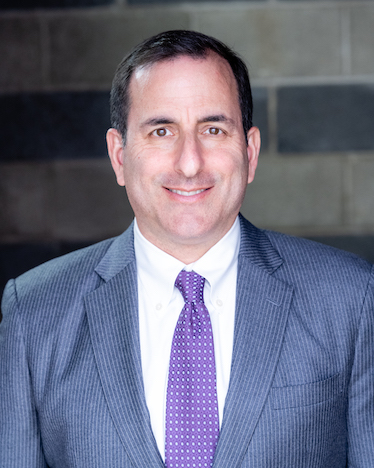Post-concussion syndrome (PCS) is a condition that can occur after a person has experienced a concussion, which is a type of traumatic brain injury. PCS is characterized by a range of symptoms that persist for an extended period beyond the expected recovery time from the initial concussion. Common symptoms of PCS may include headaches, dizziness, vertigo, fatigue, sleep disturbances, cognitive deficiencies, sensitivity to noise and light, irritability, mood changes, and vision problems.
The symptoms of PCS can vary widely among individuals, and the severity and duration of symptoms may also differ. While many people recover fully from a concussion within a relatively short period, others may experience lingering symptoms that interfere with daily life.
The exact cause of PCS is not fully understood, and it can occur after any degree of concussion. Factors influencing the development and persistence of PCS may include:
- Individual susceptibility.
- The nature of the injury.
- Other pre-existing health conditions.
Managing post-concussion syndrome often involves a multidisciplinary approach. This may include rest and gradual return to activities, cognitive rehabilitation, physical therapy, and, in some cases, medications to alleviate specific symptoms. It's crucial for individuals experiencing persistent symptoms after a concussion to seek medical attention for proper evaluation and guidance on managing their condition.
If you or someone you love suffered a serious head injury in an accident that someone else caused, you need to consult an experienced traumatic brain injury attorney in your area as quickly as possible. Your attorney can pursue the appropriate avenues for legal recovery and work to maximize the settlement or litigation compensation you receive.
Schedule a Free Initial Consultation Today!
Accidents that May Result in Post-concussion Syndrome

PCS can result from various types of accidents, each carrying its own set of risks for head injuries. Common types of accidents that may lead to PCS include:
- Motor Vehicle Collisions – High-speed collisions or sudden stops can lead to traumatic brain injuries (TBIs), a common precursor to PCS. Whiplash or a direct impact to the head during a car crash may cause the accident victim’s brain to shift within the skull, resulting in damage that may trigger PCS.
- Assaults – Physical assaults, including punches, kicks, or blunt force trauma to the head, can result in concussions and subsequent PCS. Victims of assaults may experience prolonged symptoms, affecting their cognitive and emotional well-being.
- Workplace Accidents – Certain occupations involve a higher risk of head injuries, such as construction workers, where falling objects or accidents involving heavy machinery can lead to concussions. Occupational incidents may significantly contribute to the development of PCS.
- Falls – Falls are a leading cause of head injuries, especially among the elderly and young children. A fall from heights or a slip on a wet surface can lead to a severe head impact, causing concussions and potentially initiating PCS symptoms.
- Bicycle Accidents – Bicycle accidents, especially collisions with motor vehicles, can lead to severe head injuries. Helmets provide some protection, but the impact forces in accidents may still result in concussions and, consequently, PCS.
- Recreational Accidents – Activities like skiing, snowboarding, or skateboarding carry inherent risks of falls and collisions, often resulting in serious head injuries. These accidents, if not properly addressed, can contribute to the development of PCS.
- Explosions and Blasts – Military personnel, as well as individuals in proximity to explosions or blasts, are at risk of sustaining traumatic brain injuries. The force generated by these events can lead to concussions, and in some cases, the persistent symptoms may evolve into PCS.
- Sports Injuries – Contact sports, such as football, soccer, or boxing, expose participants to a heightened risk of head injuries. Blows to the head or violent collisions can cause concussions, and repetitive trauma increases the likelihood of developing post-concussion syndrome over time.
Understanding the diverse range of accidents that can lead to PCS highlights the importance of preventive measures, immediate medical attention, and ongoing care for individuals who have experienced head injuries. Early intervention and proper management can significantly reduce the risk and effects of PCS.
In addition to seeking prompt medical treatment for a head injury, always consult with a personal injury lawyer in your area right away. Your attorney can handle the legal aspects of your case while you attend medical appointments and focus on making a full recovery.
How Do You Prove the Legal Elements of a Head Injury Case?
Proving the legal elements of a head injury case involves presenting evidence to establish key elements necessary for a successful claim. These cases often arise in the context of personal injury or negligence claims, and the process involves demonstrating the following legal elements:
- Duty of Care – The foundational step is to establish that the at-fault party owed the injured accident victim a legal duty of care. In many cases, this duty is inherent, such as a driver's duty to operate a vehicle safely or a property owner to maintain safe premises.
- Breach of Duty – Demonstrating that the at-fault party breached their legal duty of care is crucial. This involves showing that the at-fault party’s actions or inactions fell below the standard expected of a reasonable person in a similar situation. For instance, a driver may breach their duty by engaging in reckless behavior or a property owner by neglecting premises hazards.
- Causation – Establishing a direct link between the at-fault party’s breach of duty and the head injury is essential. This element involves proving that the at-fault party’s actions were a substantial factor in causing the injury. Medical evidence, expert testimony, and a clear timeline of events can contribute to establishing causation. For example, a medical expert can testify to a specific injury directly resulting from the accident. Expert medical providers can also be helpful when it comes to proving a permanent head injury in an accident.
- Damages – To recover financial compensation, the injured accident victim must establish the full extent of their damages. In head injury cases, these damages may include all related medical expenses, lost income, pain and suffering, and emotional distress. Medical records, bills, and expert testimony can support quantifying damages.
- Foreseeability – Demonstrating that the accident victim’s head injury was a foreseeable consequence of the at-fault party's actions strengthens the case. This element shows that a reasonable person should have anticipated the potential harm resulting from the breach of duty.
- Negligence Per Se – In some cases, a head injury may result from violating a specific law or regulation. Proving negligence per se involves establishing that the at-fault party violated a statute or regulation to prevent the type of injury that ultimately occurred.
To build a strong case, you must gather relevant evidence, such as medical records, witness statements, expert opinions, and documentation of the incident. An experienced personal injury attorney can gather the necessary documents and retain the necessary experts to establish your legal burden of proof and recover appropriate monetary damages on your behalf.
What are the Legal Steps for Successfully Litigating a Post-concussion Syndrome Accident Case?

Litigating a PCS accident case involves navigating a complex legal landscape. PCS arises from a traumatic brain injury, often sustained in accidents such as car crashes or premises accidents. To pursue a legal claim for compensation, your attorney may take the following steps:
- The initial step in litigating a PCS case is to establish liability. This step involves demonstrating that someone else's negligence or wrongful conduct caused the accident and concussion. Gathering evidence, such as eyewitness testimony, accident reports, and expert opinions, becomes crucial in proving fault. This step lays the foundation for the entire legal process.
- Once liability is established, the next step is to determine damages. In PCS cases, damages may include medical expenses, rehabilitation costs, lost income, pain and suffering, and emotional distress. Documenting the extent of the injury through medical records, expert testimony, and other relevant evidence is vital for accurately valuing the damages sought.
- After determining damages, the accident victim’s attorney typically initiates the litigation process by filing a complaint against the responsible party in the state court system. This legal document outlines the details of the case, the allegations against the at-fault party, and the specific damages that the accident victim is seeking. The at-fault party then has a specified period to respond to the complaint.
- Discovery follows the complaint filing, allowing both parties to exchange relevant information and evidence. This phase involves interrogatories, requests for the production of documents, and depositions. For a PCS case, medical records, accident reports, and expert opinions regarding the long-term effects of the concussion are crucial components in the discovery process.
- Either party may file pre-trial motions to address specific legal issues before the case goes to trial. The court reviews these motions and, if necessary, holds hearings to decide their merits.
- The case proceeds to trial if the parties do not reach a settlement during pre-trial negotiations. Both sides present their evidence, call witnesses, and make legal arguments. The judge or jury then decides the outcome based on the presented facts and applicable law.
Litigating a PCS case in the court system requires legal experience, thorough documentation, and a strategic approach to presenting evidence. A knowledgeable personal injury attorney can aggressively litigate your case for you and handle all necessary steps to secure the financial compensation you deserve.
What is the Approximate Value of my Head Injury Case?
Determining the value of a head injury case is complex and depends upon various factors. An accident victim's overall compensation award is supposed to cover all related economic and non-economic damages. Some of the most common factors that influence the settlement or litigation value of a head injury case include:
- Severity of the Accident Victim’s Injuries – The extent and severity of the accident victim’s head injury play a significant role in determining the case's value. More severe injuries with long-lasting or permanent consequences generally result in higher compensation.
- Pain and Suffering – Non-economic damages, such as pain and suffering, emotional distress, and loss of life enjoyment, are subjective but are crucial components of a head injury case's value.
- Effects on the Accident Victim’s Daily Life – Compensation may also consider how the head injury affects the accident victim's ability to perform daily activities, enjoy hobbies, and maintain relationships.
- Lost Income – If the head injury causes the accident victim to miss time from work or results in a permanent disability that affects earning capacity, compensation may include lost income and future lost earnings.
- Medical Expenses – The costs associated with medical treatment, including hospital bills, surgeries, rehabilitation, and ongoing care, contribute to the overall value of the head injury case.
- Insurance Coverage – The available insurance coverage, whether from the at-fault party's liability insurance or other sources, can affect the recoverable maximum compensation.
- Liability and Negligence – The degree of negligence on the part of the responsible party and the strength of the evidence supporting the accident victim’s case can influence potential compensation.
It is important to note that every case is unique, and there is no fixed amount for a head injury case. Settlements or jury awards can vary widely based on the accident victim’s specific circumstances. A skilled personal injury attorney can evaluate the strength of your head injury claim or lawsuit and estimate your case's likely value.
Call an Experienced Personal Injury Lawyer Right Away
If you or someone you love suffered PCS or some other serious head injury in an accident resulting from another person's negligence, you need to involve a skilled personal injury attorney in your case right away. Your attorney can gather the necessary evidence, including important medical documentation, to establish the legal elements of your case. Your attorney can also handle every aspect of your personal injury claim or lawsuit going forward and will work hard to maximize your overall monetary recovery.
The injury claim process is difficult enough when you have injuries that heal. With the ongoing complications from post-concussion syndrome, seeking compensation can seem insurmountable. Fortunately, the right assistance is available at an injury law firm near you. Seek your free case evaluation so an attorney can identify the compensation you deserve and the best course of action to achieve financial recovery. They will handle the entire process from there.



